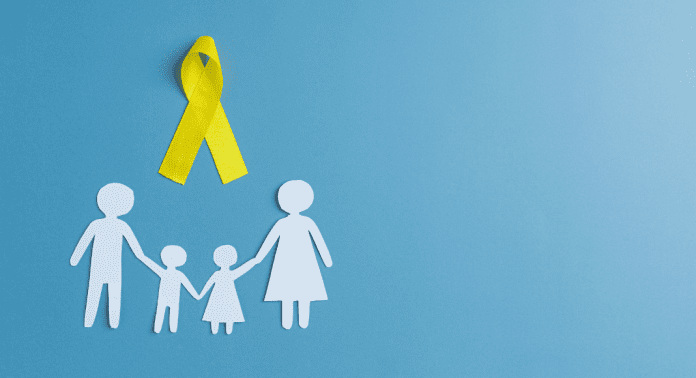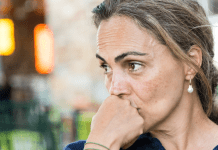This post is sponsored by HCA Midwest Health. Opinions belong to the writer.
On the surface, I had everything going for me: a career in the Air Force, a desire to go to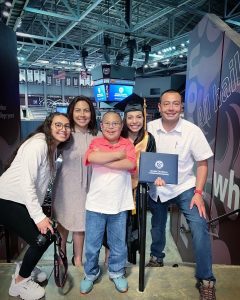 dental school after finishing my dual degrees in psychology and Spanish, and a loving and supportive family.
dental school after finishing my dual degrees in psychology and Spanish, and a loving and supportive family.
Inwardly, however, I was struggling with self-deprecating thoughts about my value, my looks, and my purpose on Earth. These thoughts eventually escalated to the point where I contemplated self-harm and suicide. The physical strength I got when I started having suicidal thoughts scared me. I remember once when I was so frustrated with the world, I went to my bedroom, grabbed my phone and threw it hard against the wooden headboard of my bed that it shattered. I’m a small lady, I didn’t know where that strength came from. That’s when I knew the force that I could have, something bad was going to come from it.
I opened up to my family, several members who had dealt with their own mental health struggles in the past. Their love and support led me to consult with medical professionals who eventually referred me to Research Psychiatric Center (RPC) in Kansas City, Mo., where I participated in the VINE Program and Partial Hospitalization Program.
My family is from Bogota, Colombia, so we already have that stigma of being Hispanic and not being able to be open about your mental health. But my family was very supportive because depression, anxiety and bipolar disorders run in the family. We had already seen this before, we had been to psychiatric facilities before to seek help. We already knew what it was like to be here, to be in each other’s shoes, we already knew the best thing we could do was to give each other that support.
I went into RPC nervous because I thought the more I would share about my mental health, the longer they would make me stay. Instead, they made me feel so welcome that I was able to open up and share, getting the help I actually needed sooner rather than later.
I also went to RPC believing I was a monster for wanting to self-harm or because I had suicidal ideations. My inpatient therapist, Jason, reassured me that it wasn’t my fault for breaking my phone or having the ideation to harm myself. Before going in, I thought I was the problem. After, they reassured me it wasn’t my fault for feeling how I felt, I believed them and I live better every day now knowing that.
I learned valuable ways to handle stresses that everyday life can bring. Because I had to take time to improve my mental health, I had to push some things aside like summer school, which I was eager to do, so that I could take better care of myself first.
But now that I know it was for my health, I have a more positive outlook on life and have the tools under my belt to cope with the stressors that come with life and being a student; tools I didn’t have before. I even realized that my love for shopping was a coping mechanism for my depression. I would shop for hours on end without a care in the world as if I had the money or funds to support it; the instant gratification was all that mattered.
I also learned something fun about myself. While at RPC, I enjoyed participating in art, drawing, and painting therapy. That was a skill I didn’t know I had or could enjoy, and I wouldn’t have found it if I didn’t take time to seek help or go through the inpatient program.
drawing, and painting therapy. That was a skill I didn’t know I had or could enjoy, and I wouldn’t have found it if I didn’t take time to seek help or go through the inpatient program.
The best advice I would give parents is to give their children, regardless of age, the love they need at that moment. They may need a hug, or they may need more help than that. Do not be afraid of addressing it. Instead of saying, ‘oh no, my kid is in a psychiatric facility,’ or, ‘my kid is in therapy,’ say things like ‘my kid is brave,’ or ‘my kid is strong for getting the help they need’ because those children are wanting to live more than any other day they had before. They want to see the beauty in life and they still want to be here. Opening up to parents or loved ones can be a tough topic, but it is needed.
When I opened up to my mom about it, I knew it was a sit-down conversation, it may not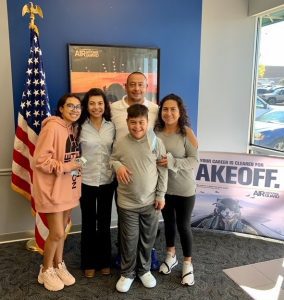 be like that for everybody, but the best way to go about it is to be honest. Be honest and know there is support out there and that there are people who will love you no matter what. People are here to take care of you and help you.
be like that for everybody, but the best way to go about it is to be honest. Be honest and know there is support out there and that there are people who will love you no matter what. People are here to take care of you and help you.
If you or a loved one are struggling with mental health, please know that waiting to get care or not seeking care at all can hurt worse. Through my own mental health journey, I learned more about myself and the importance of making my mental health a priority. RPC is there and is specialized to help when we need the help. I am definitely glad I made the choice to go get the help I needed because I am still here; I get to experience life in a different way and see things in a new way.
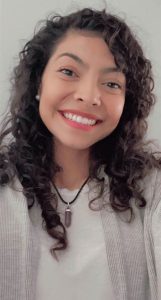 23-year-old Linda Clavijo Fajardo lives in Kansas City, Missouri. She is a student at the University of Missouri-Kansas City.
23-year-old Linda Clavijo Fajardo lives in Kansas City, Missouri. She is a student at the University of Missouri-Kansas City.
To learn more about Research Psychiatric Center, please visit its website. If you would like to speak to someone, please schedule an online appointment or call (816) 444-8161. The 988 Suicide and Crisis Lifeline is a national network of local crisis centers that provides free and confidential emotional support to people in suicidal crisis or emotional distress 24 hours a day, seven days a week in the United States.
Research Psychiatric Center, a part of HCA Midwest Health, has provided adult and adolescent behavioral health services to the Kansas City community for 30 years.








